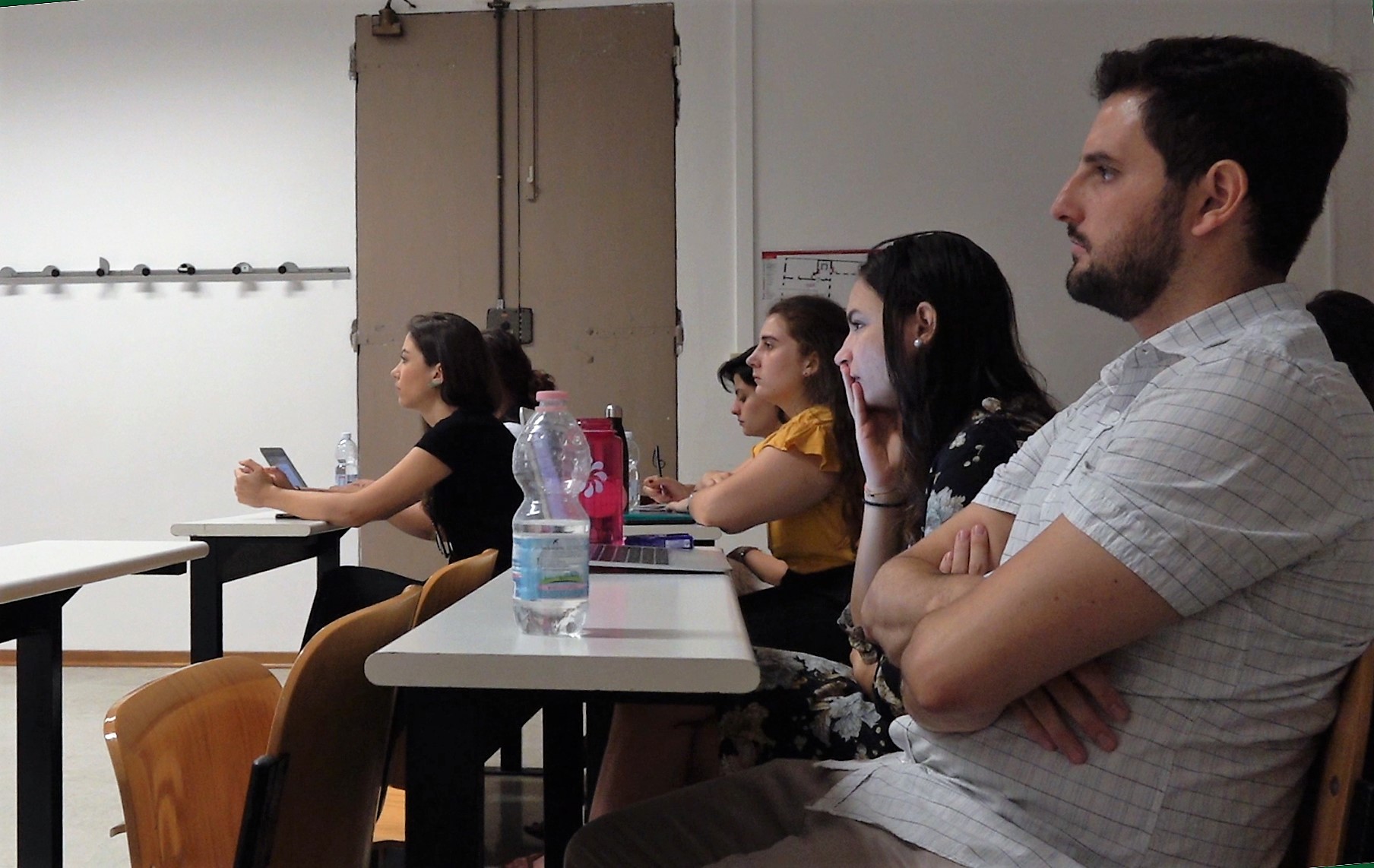Workshop with UPR Info

On July 5th the University of Padova had the honor to host a workshop with Ms. Nicoletta Zappile, Programme Manager of UPR Info. During the event the students working in the development of the Padova Model UPR had the opportunity to learn and organized the structure of the simulation closer to the procedure of pre-sessions carried on by UPR Info. The students were trained in how to replicate this mechanism on the simulation that will take place on 27, 28 and 29 November. UPR Info is a non-governmental organisation dealing specifically with the Universal Periodical Review and active in the improvement of the system. Their main activities are related with the quality of the recommendations given and the implementation of the outcomes of the process.
UPR Info works close to the Civil Society Organizations and regularly organizes pre-sessions where those organizations have the floor to present their concerns about human rights to the Recommending States, their work also includes the development of information on how to improve the UPR mechanism and advocacy projects related to the implementation of recommendations during the whole UPR cycle. During the workshop, the participants dealt with the role of Civil Society in the UPR, going deep into the topic, giving a broad knowledge about the process for the Padova Model UPR team.
The importance of Civil Society on UPR mechanism
The participation of Civil Society Organisation (CSOs) is indicated in the HRC Resolution 16/21 according to which “the review should take into consideration credible and reliable information from other relevant stakeholders, these include, inter alia, CSOs, national human rights institutions, human rights defenders, academic institution and research institutes, regional organizations, as well as civil society representatives”. Ms. Zappile explained during the workshop that these submissions are mutually beneficial to the State as they provide credible information and CSO are able to influence the process and provide balance to the National report and the United Nations Compilation report. However, since the UPR is a State led process, the structure of the review limits the extent of engagement of civil society and most of their participation is through the submissions and they do not have active participation during the Working Group. Since CSOs are crucial to the success of the mechanism in enhancing the promotion and protection of human rights on the ground, UPR Info introduced the Pre-sessions in 2012 to offer civil societies and national human rights institutions an international platform to advocate on concerns ahead of UPR and provide State delegations with first-hand information through direct engagement with human rights experts. The Pre-sessions are viewed as an effective and efficient way of engaging States and CSOs to enhance recommendations and cooperation strategies that the sessions have become essential in the UPR process.
Developments of Padova Model UPR
The Padova Model UPR aims to structure the simulation closer to the Geneva Process, but at the same time provide participants with knowledge and understanding on the relevance of other actors, like CSOs and human rights experts, to ensure that human rights is protected and implemented on the national level in a multi-level approach. The partnership workshop with Ms. Zappile provided the team with an in-depth knowledge of the pre-sessions that will be embedded in the overall structure of the Model UPR. Participants in the simulation will not only replicate the format of the UPR working group, but gain knowledge about the whole UPR cycle and develop skills the can use in their academic and professional human rights practice.
Contact: upr.modelpadova@gmail.com

